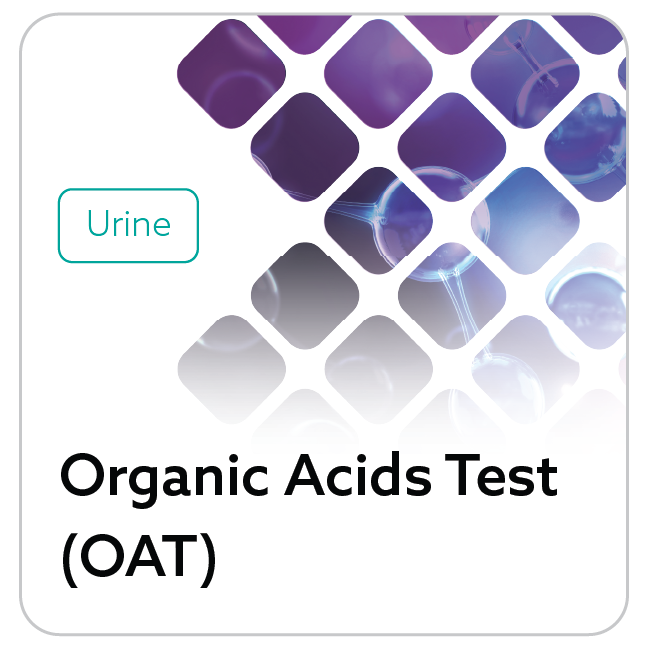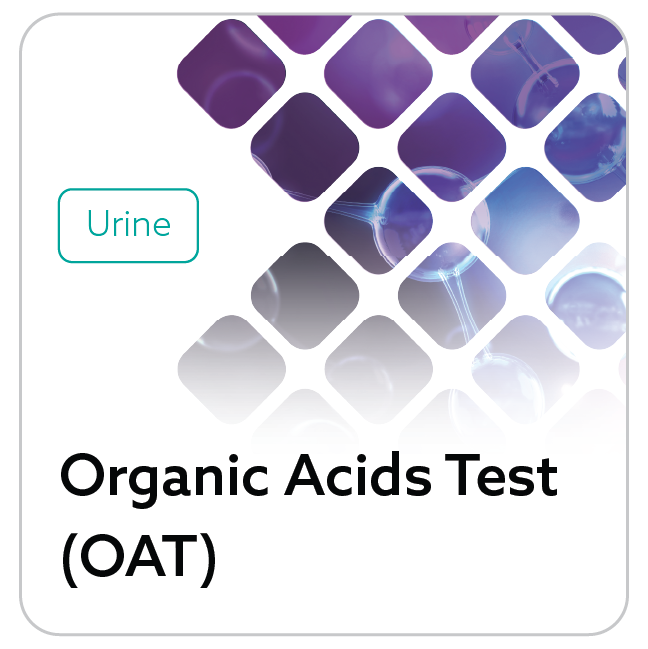Organic Acids Test (OAT)
Organic Acids Test (OAT)
Regular price
$310.00 USD
Regular price
Sale price
$310.00 USD
Unit price
per
Shipping calculated at checkout.
Couldn't load pickup availability
Specimen Requirement
10 mL urine minimum.
Please see collection instructions for detailed instructions.



A Nutritional and Metabolic Snapshot
-
What Patients Might Benefit
-
Details



